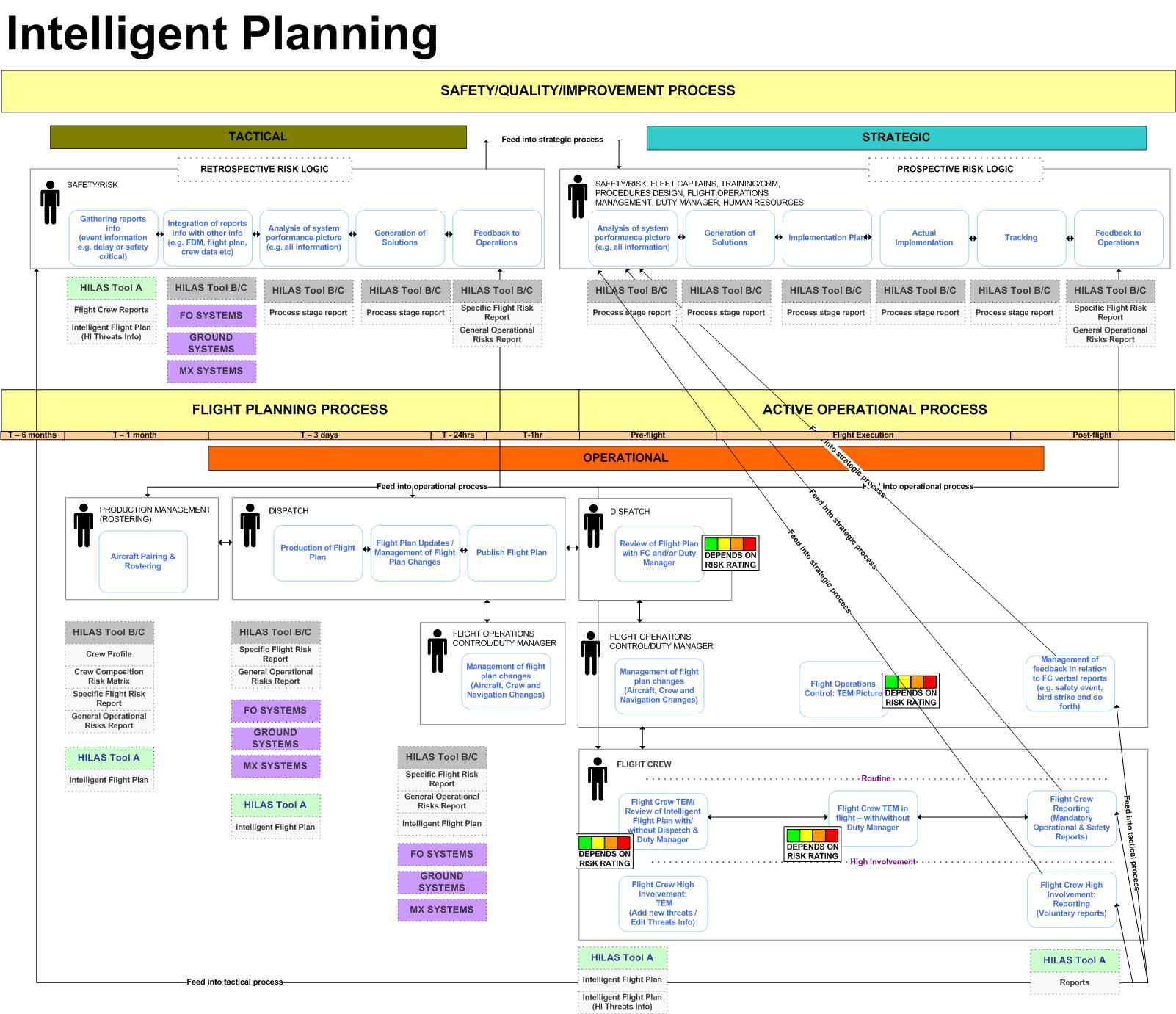HILAS
Human Integration in the Lifecycle of Aviation Systems
Background
In a complex system like aviation, the human operator (pilot, air traffic controller, maintenance technician) plays a critical role both within and between sub-systems. Optimising this role requires new design to reflect real human operational requirements. The HILAS project will develop a 'system life-cycle' model in which knowledge generated about the human aspects of the system at the operational end is transformed into an active resource for the design of more effective operational systems and better, more innovative, use of technologies.
Objectives
The HILAS project contains four parallel strands of work: the integration and management of human factors knowledge; flight operations processes and performance; the evaluation of new flight deck technologies, and the monitoring and assessment of maintenance operations. A knowledge management system linking all the strands of the project will facilitate the use of the project's knowledge both inside and outside the project. It will also examine how to transform operational knowledge to stimulate new design concepts. A standardised European model for flight operations performance monitoring and process improvement will be developed using cockpit integration technology. The evaluation of new flight deck technologies will address new and emerging technologies, such as synthetic vision, head-mounted displays and multi-modal dialogue systems. The human factors of these technologies will be evaluated in an integrated simulation rig. An integrated and standardised set of tools and methods will be developed for assessing and managing human factors across the aircraft maintenance lifecycle, from design to operations.
Description of the work
The Knowledge Integration strand develops the knowledge base of usable human factors knowledge. It will develop a knowledge management system; it will facilitate the use of that knowledge through the management of user groups and user activities; it will establish the requirements for the implementation of that knowledge and will examine how that knowledge should be transformed to stimulate new design ideas. Finally it will evaluate how well the project manages its knowledge in order to create innovation possibilities. The Flight Operations strand will develop a standardised methodology for System Design and Performance Management through three main phases. Phase one develops and integrates the relevant methods of process design and performance monitoring within a common software environment. Phase two provides a full-scale trial of this system through the full cycle from initial process analysis and performance monitoring to redesign, implementation and final performance monitoring. Phase three will then validate and standardise this model with further trials with airlines in different European regions.The Flight Deck Technologies strand will select a range of new and emerging technologies, which can support or contribute to relevant new flight deck application requirements. These technologies will be integrated into an existing simulated flight deck environment, which will enable a comprehensive human factors evaluation. This evaluation will proceed in two stages. After the first evaluation both the evaluation tools and the hosting of the application on the technologies will be refined. The outcome of the second evaluation will be new cockpit display and control technologies, specified and evaluated.
The Maintenance strand will develop and standardise a prototype maintenance management system. The first phase will review and evaluate existing tools and will define requirements for an integrated system (including requirements for new tools). The second phase will develop this prototype integrated system, including some implementation trials. The third phase will evaluate the integrated system through full-scale trials and will validate the component methodologies. The fourth phase will standardise these methodologies across European organisations and assess their global applicability.
Expected achievements The primary focus of the project is on reducing the potential impact of human error on the safety of aviation systems. This will be achieved through the delivery of appropriate human factors knowledge throughout the system to improve design, operation or monitoring. The project will contribute to human factors standards development by regulatory bodies. It will link performance assessment in flight operations and aircraft maintenance to system and process improvement and will demonstrate how new technologies can be used in flight deck tasks to reduce the incidence of human error.


